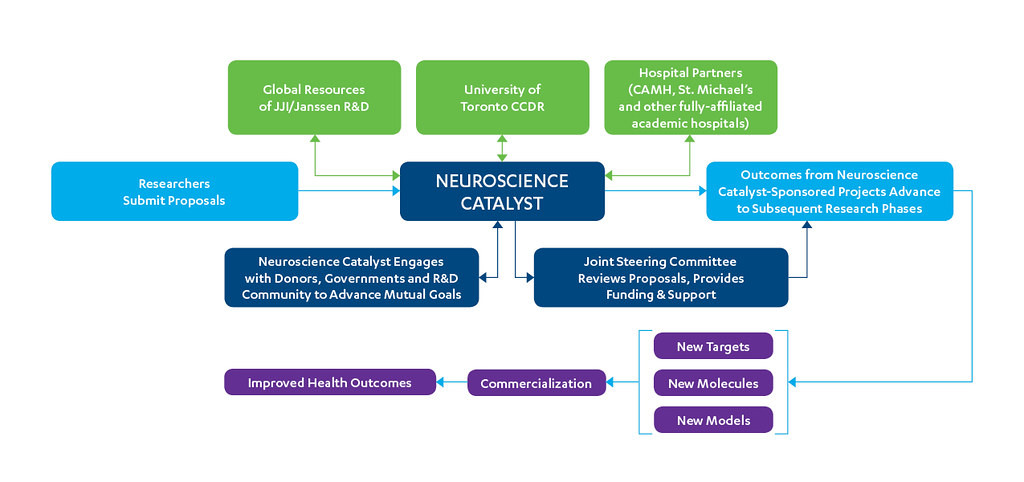Government Invests $1 Million to Help Develop Better Treaments for Neurological Disorders
 Toronto’s neuroscience efforts to find new drugs to treat and manage brain disorders—specifically, mood disorders and Alzheimer’s disease—took another step forward as the Government of Ontario’s Ministry of Research and Innovation announced a $1 million contribution to the Neuroscience Catalyst consortium, bringing the total raised for the open innovation fund to $3.7 million.
Toronto’s neuroscience efforts to find new drugs to treat and manage brain disorders—specifically, mood disorders and Alzheimer’s disease—took another step forward as the Government of Ontario’s Ministry of Research and Innovation announced a $1 million contribution to the Neuroscience Catalyst consortium, bringing the total raised for the open innovation fund to $3.7 million.
“We are pleased to support this collaborative innovation model which will accelerate the development of better treatment options for people with neurological disorders,” said Reza Moridi, Minister of Research and Innovation and Minister of Training Colleges and Universities, who announced the contribution at the 2015 BIO International conference in Philadelphia during the opening of the Ontario pavilion. “Partnerships between universities, academic hospitals, research institutes, industries and government are key to positioning Ontario as a global leader in Life Sciences.”
Founded by the University of Toronto (U of T) and facilitated by Johnson & Johnson Innovation, the Neuroscience Catalyst consortium is using the Toronto research community’s well-established strengths in neuroscience to identify promising early-stage molecules and technologies through an open innovation model.
“We all want the next generation of solutions that are so desperately needed by patients and their families,” said Professor Ruth Ross, director of the Centre for Collaborative Drug Research at U of T. “In Canada, mood disorders such as depressive disorder and bipolar disorder affect about 10 per cent of the population. Alzheimer’s disease affects more than 745,000 Canadians.”
Other partners joining the project include MaRS Innovation, which introduced the partners to the Ministry of Research & Innovation and led the early conversation; Evotec, a global, provider in the drug discovery field; and Ontario Centres of Excellence (OCE), which is administering the funding.
Since its September 2014 launch, the Neuroscience Catalyst program has already selected four early-stage medical and scientific projects for development, all focused on mood disorders and Alzheimer’s disease.
“There’s good reason to feel bullish about Toronto’s strengths in neurology and neuroscience research,” said Dr. Raphael Hofstein, president and CEO of MaRS Innovation.











